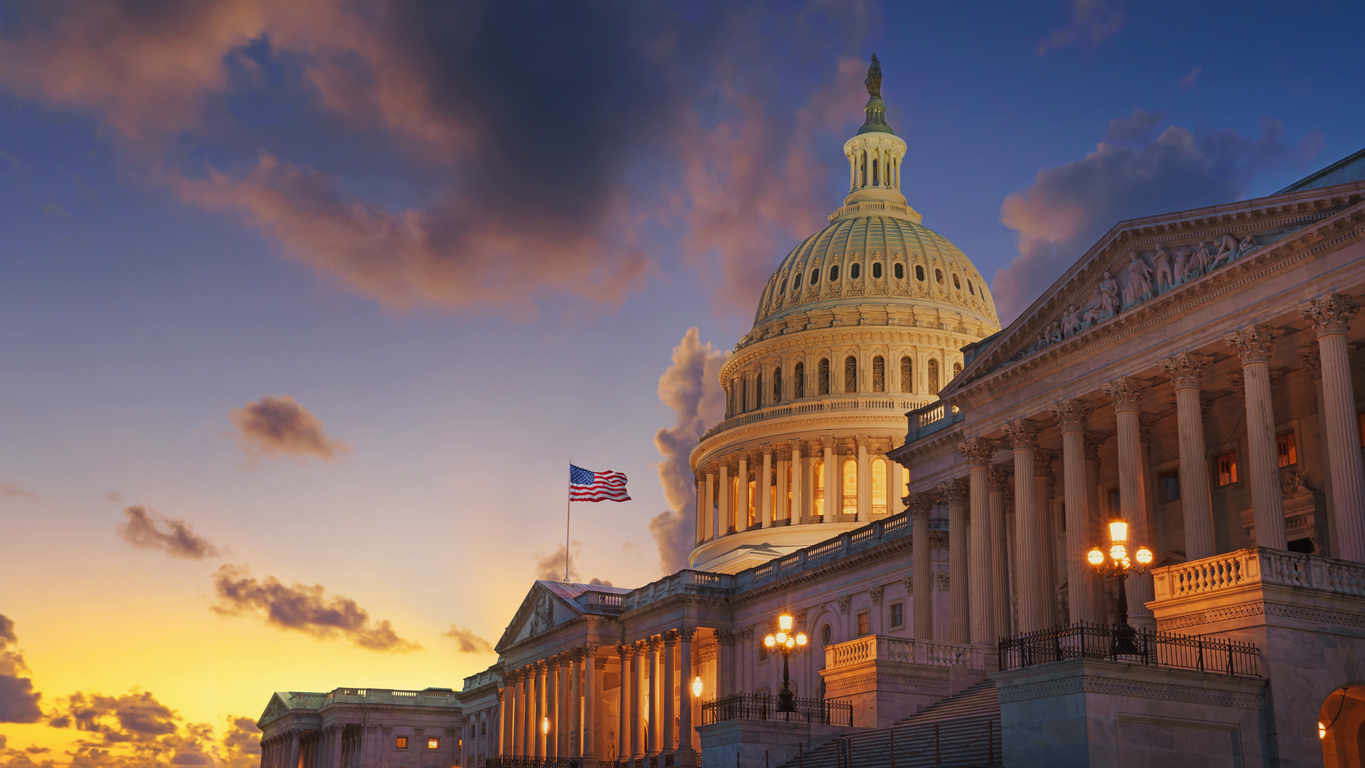Republicans Face Defeat as Spending Bill Fails, Government Shutdown Looms
In a dramatic display of Congressional gridlock, House Republicans failed to pass a spending bill on Thursday, mere hours before a looming government shutdown threatens to disrupt the lives of millions of Americans. The defeat, coming from within GOP ranks and amidst Democratic opposition, has raised doubts about the party’s ability to govern cohesively and effectively, particularly with Donald Trump’s return to the presidency on the horizon.
The legislation, which sought to temporarily extend government funding until March while including provisions for disaster relief and a suspension of the national debt ceiling, was rejected by a vote of 174-235. The failure signals deeper divisions within the Republican Party and complicates the political landscape as the government hurtles toward shutdown.
Key Details of the Rejected Bill
Crafted hastily in the wake of the collapse of a bipartisan deal, the Republican bill included measures aimed at preventing a shutdown while setting the stage for broader fiscal reforms under a future Trump administration. Notable provisions included:
- Funding Extension: A temporary measure to fund the government until March, aligning with Trump’s return to office.
- Disaster Relief: A $100 billion allocation to support communities affected by natural disasters.
- Debt Ceiling Suspension: A two-year suspension, allowing the federal government’s $36 trillion debt to grow and enabling Trump’s promised tax cuts.
However, the package excluded several previously discussed elements, such as pay raises for Congress and reforms to pharmacy benefit managers, which had been part of the earlier bipartisan negotiations.
Despite these concessions, the bill faced criticism from both sides of the aisle.
Republican Dissent and Internal Struggles
The failure of the bill highlighted significant fractures within the GOP. A faction of fiscal conservatives opposed the legislation, arguing that it lacked substantive spending cuts and risked ballooning the national debt. Congressman Chip Roy, one of the vocal critics, stated, “I am utterly appalled by a party that campaigns on fiscal responsibility.”
The dissent extended to a group of 38 Republicans who voted against the bill, joining nearly all Democrats in opposing it. This unexpected internal opposition dealt a severe blow to Speaker Mike Johnson’s leadership and underscored the difficulty of unifying the party around key legislative priorities.
Democratic Opposition and Criticism
Democrats were quick to condemn the bill, portraying it as a giveaway to the wealthy at the expense of working-class Americans. House Democratic Leader Hakeem Jeffries criticized the measure as “a smokescreen for tax cuts benefiting billionaires like Elon Musk while burdening the nation with trillions in debt.”
Elon Musk’s involvement in the legislative process, including a series of tweets criticizing elements of the bill, drew sharp rebukes from Democrats. Some lawmakers mockingly referred to him as “President Musk” during debates, highlighting what they described as undue influence from wealthy elites.
Democratic Congressman Jamie Raskin questioned the GOP’s leadership dynamics, asking, “Who is leading the Republican Party? Is it Speaker Mike Johnson, Donald Trump, Elon Musk, or someone else entirely?”
Implications for Speaker Mike Johnson
For Speaker Mike Johnson, the failure of the spending bill represents a significant political setback. Elevated to the role after the ousting of Kevin McCarthy, Johnson has struggled to unify his party and pass key legislation. His reliance on Democratic support for several measures has drawn ire from the GOP’s hardliners, further complicating his position.
Several Republican lawmakers have hinted at opposing Johnson’s reelection as Speaker when Congress reconvenes in January, raising the prospect of another contentious leadership battle. Johnson’s political future now hinges on his ability to navigate these challenges and rebuild trust within his party.
Potential Government Shutdown and Economic Impact
If Congress fails to pass a funding measure by midnight Friday, the federal government will face a partial shutdown. The consequences of such an outcome would be far-reaching:
- Federal Employees: Over 2 million federal workers, including border agents, TSA staff, and national park employees, would go unpaid.
- Travel Disruptions: The Transportation Security Administration has warned of longer wait times at airports during the holiday travel season.
- Economic Uncertainty: Prolonged gridlock could shake investor confidence, particularly as debates over the debt ceiling loom in the coming months.
The shutdown would also disrupt essential services, including border enforcement and disaster response, compounding the challenges faced by communities already grappling with economic and environmental crises.
Broader Political Implications
The failure to pass the spending bill underscores the challenges of governance in a polarized political environment. For Republicans, the defeat raises questions about their readiness to lead effectively under Trump’s administration.
The bill’s rejection also highlights the difficulty of balancing fiscal conservatism with the need for pragmatic governance. While some GOP members advocate for deep spending cuts, others acknowledge the necessity of temporary measures to maintain government operations and avert crises.
Democrats, meanwhile, are leveraging the chaos to underscore the stakes of the upcoming elections, framing the GOP as a party unable to govern responsibly.
Related: Trump's Last-Minute Demands Jeopardize Government Funding as Shutdown Looms
Future Outlook
Despite the failure of this bill, lawmakers have limited time to negotiate an alternative measure. With the Senate under Democratic control and the White House signaling opposition to the GOP’s proposal, the path forward remains uncertain.
Speaker Johnson has indicated a willingness to explore bipartisan solutions, but internal divisions within his party may hinder such efforts. As the clock ticks down, the risk of a government shutdown—and its accompanying fallout—continues to grow.
The current crisis also foreshadows the challenges that lie ahead for Trump’s presidency, particularly as he seeks to implement ambitious fiscal policies while navigating a divided Congress.
The rejection of the Republican spending bill reflects deep divisions within the party and raises significant concerns about the state of governance in Washington. With a government shutdown imminent, millions of Americans are left to grapple with the uncertainty of disrupted services, unpaid wages, and a potentially volatile political landscape.
As lawmakers scramble to find a solution, the failure of this legislation serves as a stark reminder of the complexities and stakes of governing in a polarized era.











